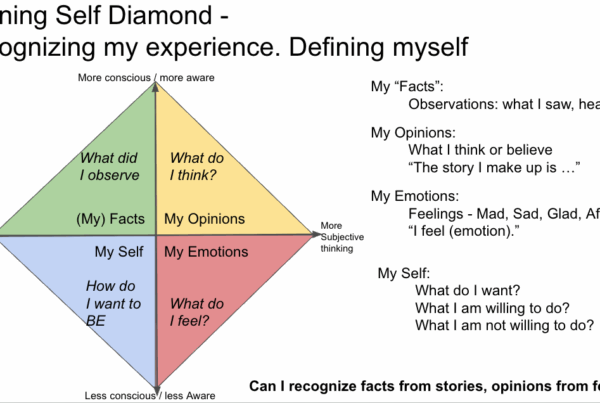
High-Functioning Anxiety: The Silent Struggle
In a world that glorifies hustle and rewards unrelenting productivity, high-functioning anxiety often thrives unnoticed. It’s a paradoxical condition: outwardly, individuals appear successful, poised, and in control, yet internally, they may be battling a storm of relentless self-doubt, perfectionism, and fear of failure. A systems perspective can offer a new way to think about and deal with this phenomenon.
What is High-Functioning Anxiety?
High-functioning anxiety is not an official clinical diagnosis but a term often used to describe individuals who experience anxiety while maintaining high levels of outward success. It’s a silent condition where anxiety manifests as overachievement, detailed organization, or a habit of taking on more than one can handle. Unlike other anxiety disorders that may disrupt daily functioning, high-functioning anxiety insidiously blends with qualities society admires.
From a systems perspective, the concept of over-functioning and anxiety binding provides a different way to think about high-functioning anxiety individuals. But how does one recognize this tendency? I use the word tendency deliberately because, like most things biological, this pattern manifests along a continuum from low to high intensity. It might manifest more when a person is more stressed and then falls back to something that isn’t noticeable. Or high-stress situations could push the person into overload, contributing to health-related issues, for example.
Recognizing the Signs
One reason high-functioning anxiety often flies under the radar is because the individual appears to be “high functioning.” Driven, detail-oriented, and dependable individuals are rarely seen as struggling. Yet, beneath this behaviour lies a range of symptoms resulting from the driven nature of the individual:
- Physical symptoms such as tension headaches, fatigue, digestive issues, and insomnia.
- Emotional burdens like impostor syndrome, hypersensitivity to criticism, and an inability to relax.
- Behavioural patterns include over-committing, hypervigilance, and avoiding vulnerability.
High-functioning anxiety creates an exhausting cycle of effort that brings no lasting satisfaction. This chronic anxiety binding can foster the desire to do even more, leaving little room for rest or self-care.
The Root of the Struggle
One way to think about this pattern is that it originated in one’s family of origin. Some examples are patterns of over-functioning, over-responsibility, increased vigilance, or peace at any price posture. What this pattern translates to is a level of chronic anxiety in the individual. Being business and accomplishing a lot are anxiety-buffering behaviours. Can anxiety be bound? is a previous post about this behaviour.
The Hidden Cost
Although individuals with high-functioning anxiety may appear to thrive, the personal and relationship toll can be significant. Physical health deteriorates under the strain of constant stress, while emotional health suffers from feelings of inadequacy and isolation. Social relationships also often take a hit; people may fear judgment or rejection, leading them to retreat or maintain a façade of perfection.
On a more subtle level, one is “just too busy” and is non-consciously more comfortable being busy than simply “being” in relationships. It doesn’t help that society often values career success more than family connections.
Over time, this anxiety binding can’t keep up and can escalate into more serious mental health issues or lead to burnout. Left unchecked, even a highly capable person can be on the brink of a breakdown, physically or emotionally.
Managing High-Functioning Anxiety
The good news is that high-functioning anxiety, like other forms of anxiety, is manageable with the right tools and support. However, one can’t fix something if one can’t see what needs fixing. Here’s one sign that there is an imbalance in priorities that could show the level of chronic anxiety being bound up in “high functioning.”
- Not taking time to care for oneself. Avoiding proper nutrition, exercise, and sleep because “I’m too busy.”
- Avoiding appointments that are for you – doctor, dentist, car maintenance, other things that don’t “need” to be done
- Avoiding or rushing time spent with parents and siblings, not visiting them. What kind of tension or discomfort comes up when you think about this?
- Not hanging out with friends, partners, or your kids. Ask yourself: does not being busy tend to make you uncomfortable?
One has to learn to recognize the discomfort that can come up when they are not “busy.” Only by observing can one interrupt the pattern. It’s hard, because it doesn’t feel good. Strategies for addressing this condition include:
- Mindfulness practices: Meditation and breathing exercises can help create space for observing your patterns
- Cognitive restructuring by reframing the busy-ness as anxiety-binding and getting clear on what’s important to yourself
- Setting boundaries: Learning to say “no” to new projects when possible instead of automatically saying yes.
- Reframing success: What are your beliefs about success? Create some new convictions about what’s important to you.
- Professional support: Changing these patterns can be challenging. Profession help is a good option.
Defining Self is Important
A key aspect of changing one’s behaviours is getting very clear on how one wants to behave. What are your convictions about how you want to show up in your life? What kind of partner, son or daughter, father or mother, friend, co-worker, or PERSON, do you want to be? Every day, not next year or when you finally aren’t busy. A person who binds a lot of anxiety will ALWAYS be busy until something interrupts the pattern. They either do this or let some negative event force it to happen—for example, illness, divorce, and estrangement from kids.
Rethinking the Narrative
High-functioning anxiety shouldn’t be romanticized as a driver of success. While society values ambition and achievement, it’s crucial to understand that this can come at a cost to our emotional health. Achieving and perfection are not the sole measures of worth; instead, balancing ambition and self-care is the true hallmark of success.
Individuals with high-functioning anxiety have come by this anxiety-binding pattern honestly. Remember, there are much worse ways to bind anxiety! Recognizing the behaviour and working to define self can lead to significant changes. Defining self isn’t easy, but neither is being so anxiously busy that you get sick or a relationship breaks down.
Thank you for your interest in family systems.
Dave Galloway
Would you like to read a post on a particular topic?
Send me your ideas – dave.galloway@livingsystems.ca
Check out our podcast on Youtube
The research that inspired this article is here
Read more about Bowen Theory here
This post might also be of interest: Can anxiety be bound


